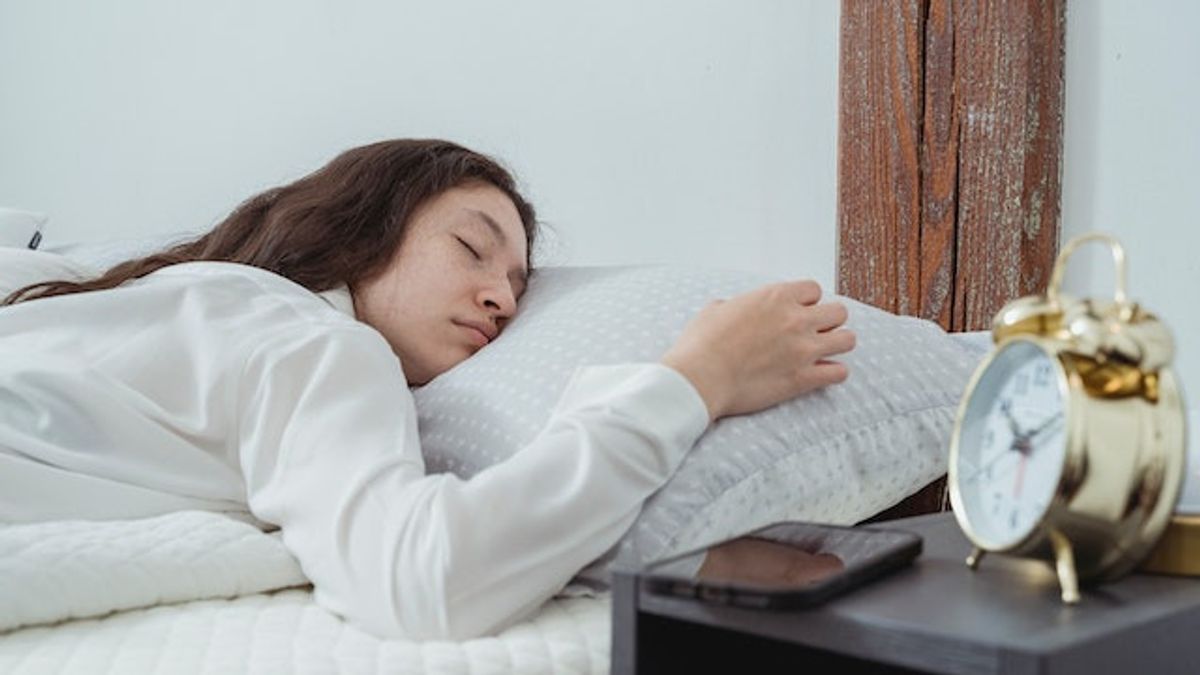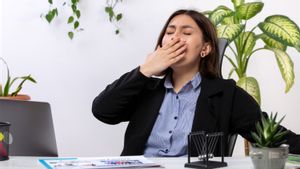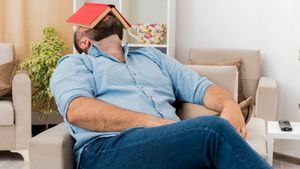JAKARTA - Do you have a habit of sleeping at night with lights on? If so, it turns out that according to research this habit has an unfavorable effect on health. So that this habit does not take longer, identify the effects of sleeping with lights on for the following body.
Light is a strong signal for the brain to stay awake. On the other hand, the darkness tells your brain to rest because it's time to sleep, notes The National Institute for Occupational Safety and Health (NIOSH), driven from Livestrong, Thursday, September 14.
That's because light suppresses melatonin secretion, a hormone that is pumped by the brain during dark, according to the National Center for Complementary and Integrative Health. So that it helps you sleep and regulate the sleep-building cycle, which is also known as the body's internal clock. In addition, light can also stimulate the brain, making it more difficult to relax before bed.
Previous research in the The Journal of Clinical Endocrinology & Metabolism found that, people exposed to room light eight hours before bed, produced lower melatonin and its release was delayed compared to people exposed to faint light.
Room light can interfere with various stages of sleep, all of which are important and needed by the body. Previous research at sleep Medicine' found that sleeping with lights beside a lit bed can disrupt sleep cycles, increase stage 1 sleep (early stages of short and light sleep), and reduce slow wave sleep (sleeping well).
Often wakes up from sleep also increases when the lights turn on. Why? Because lights affect brain activity, even when you sleep for a while. Additional research at Chronobiology International in 2019 found that low levels of light even when your eyes were closed affected your sirkadian rhythm.
The light in the room can still affect sleep even though the eyes are closed. Sleeping in the room with exposure to bright night lights is associated with a decrease in sleep time, according to research in June 2016 in sleep Medicine. Why? Because melatonin production is hampered.
SEE ALSO:
If you are sleep deprived or your sleep quality is poor, it is unlikely that you will wake up feeling fresh.
"sleeping with the lights on can make you feel tired the next day," saidtama Harris, PsyD, director of health sleep in Sleepopolis.
"This can affect overall concentration, mood, and body health," Harris continued.
Lack of sleep has been linked to the development of diabetes, cardiovascular disease, obesity and depression, according to the Centers for Disease Control and Prevention (CDC). And of course, sleeping with lights on will not make you feel better.
In a small study involving 20 people at PNAS in March 2022, healthy adults sleeping with moderate light exposure for one night had a higher night's heart rate, decreased heart rate variability (one of the heart health markers), and higher insulin resistance. The next morning compared to those sleeping in dim light.
Although long-term research is still needed, the researchers say that sleeping in a darker environment can be beneficial for cardiovascular health and metabolism.
Sleeping at night with lights on can make it more difficult for you to sleep, affect the rhythm of the sirkadian, and interfere with quality or duration of sleep. If possible, prioritize a dark sleep atmosphere at night.
"In order to sleep more soundly, it is important to make the room dark by turning off the lights, using a curtain, or wearing a blind eye," Harris said.
The English, Chinese, Japanese, Arabic, and French versions are automatically generated by the AI. So there may still be inaccuracies in translating, please always see Indonesian as our main language. (system supported by DigitalSiber.id)


















